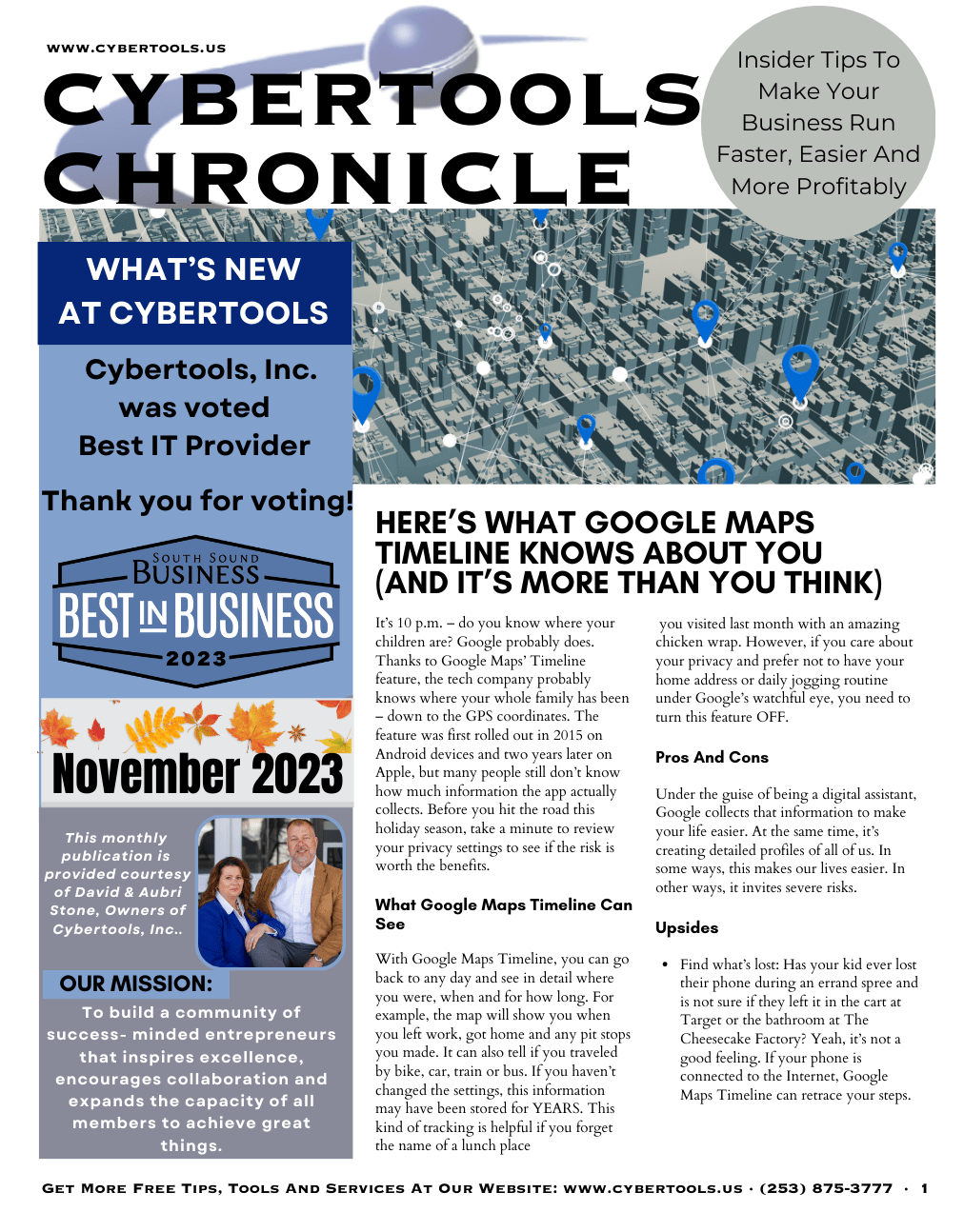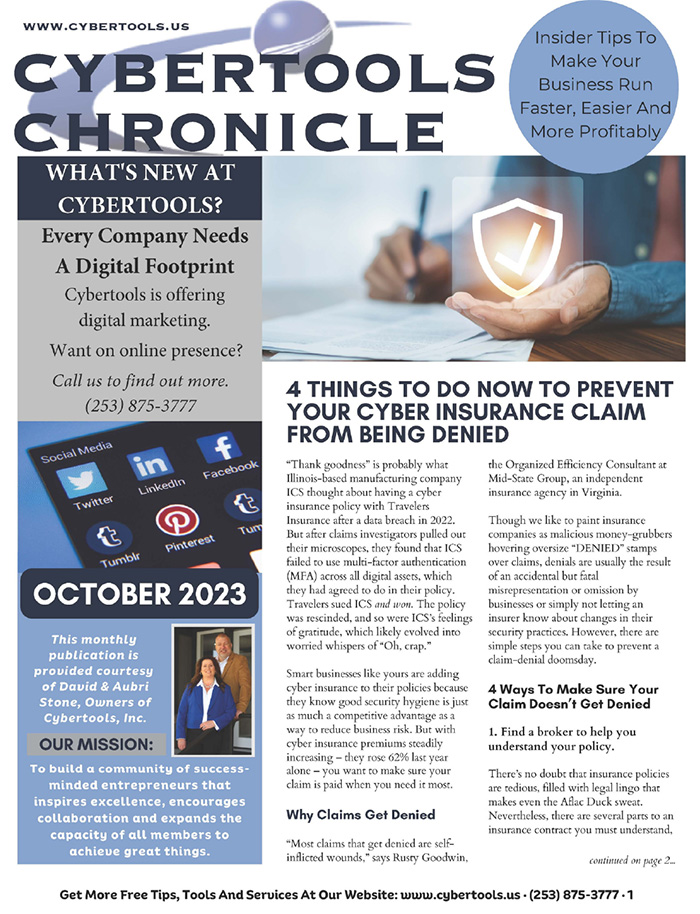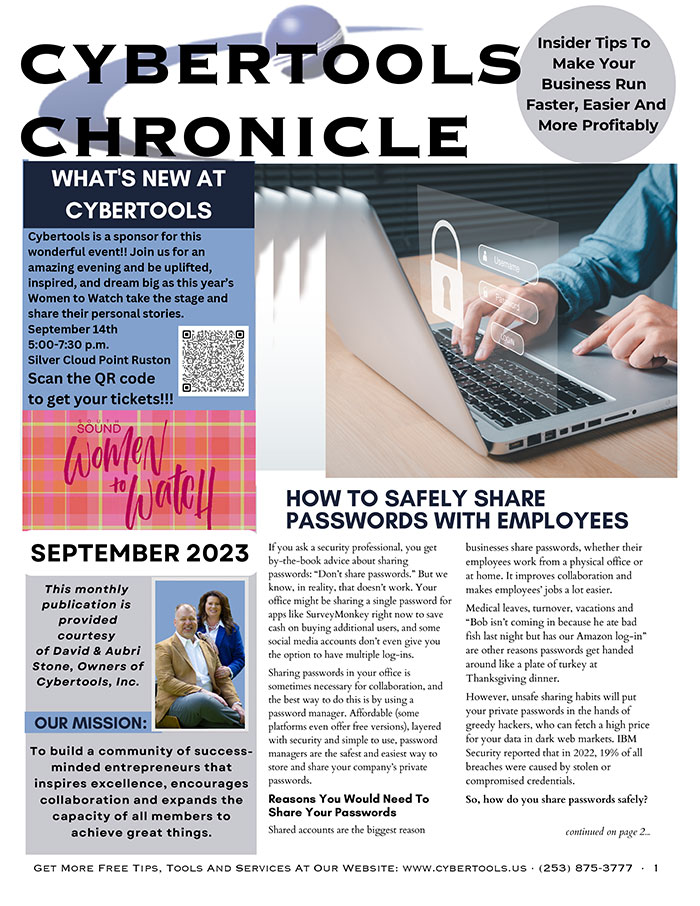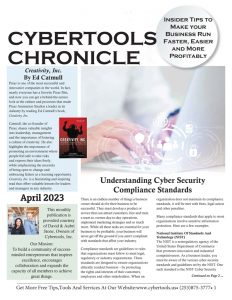Cybertools Newsletters
Featured Newsletter
Ransomware: Don’t Be A Digital Hostage
Every day, I stand in awe of the crime I see being done to small and medium-sized businesses. The amount of security we now must have to ensure that data is protected is staggering.
The reality is that cybercriminals are evolving at a rate that makes my blood boil. I watch small and medium-sized businesses be affected by these seemingly underground criminals, and I get angry.
In today's digital age, where technology drives the heartbeat of almost every industry, the threat of cyberattacks looms larger than ever. Among these threats, ransomware stands out as one of the most pervasive and damaging. It's not just a nuisance; it's a serious business risk that can cripple operations, tarnish reputations, and drain finances. As the owner of Cybertools, a company dedicated to fortifying businesses against such threats, I'm saddened to see how this has affected so many businesses.
Understanding Ransomware: Ransomware is malicious software designed to encrypt files and systems, rendering them inaccessible until a ransom is paid. These attacks often come in the form of phishing emails, malicious attachments, or compromised websites. Once the ransomware infiltrates a system, it swiftly spreads, encrypting files across networks and devices, leaving victims in a state of digital hostage.
The High Stakes of Ransomware Attacks
The impact of a ransomware attack extends far beyond the encrypted data. It can disrupt business operations, leading to downtime, loss of productivity, and revenue. Moreover, paying the ransom doesn't guarantee the safe return of your data; it only emboldens cybercriminals to continue their nefarious activities.
Protecting Your Business Against Ransomware
- Educate Your Employees: Human error is often the weakest link in cybersecurity. Train your staff to recognize phishing attempts, suspicious links, and email attachments. Regular security awareness training can empower your team to become the first line of defense against ransomware attacks.
- Implement Robust Security Measures: Invest in comprehensive cybersecurity solutions, including firewalls, antivirus software, and intrusion detection systems. Keep all software and systems updated with the latest security patches to mitigate vulnerabilities that cybercriminals exploit.
- Backup Your Data: Regularly back up your critical data and systems to an offsite location or the cloud. In the event of a ransomware attack, having secure backups ensures that you can restore your operations without succumbing to the demands of cyber extortionists.
- Develop an Incident Response Plan: Prepare for the worst-case scenario by creating a detailed incident response plan. Define roles and responsibilities, establish communication protocols, and practice drills to test the effectiveness of your response strategy.
- Engage with Cybersecurity Experts: Consider partnering with cybersecurity firms like Cybertools to conduct risk assessments, vulnerability scans, and penetration testing. These proactive measures can identify and address security gaps before cybercriminals exploit them.
Ransomware poses a significant threat to businesses of all sizes, but with vigilance and proactive measures, you can fortify your defenses and mitigate the risk. By educating your employees, implementing robust security measures, backing up your data, developing an incident response plan, and engaging with cybersecurity experts, you can safeguard your business against the scourge of ransomware.
Remember, the cost of prevention is far less than the cost of recovery. Don't wait until it's too late. Act today to protect your business from the ever-evolving threat landscape of cybercrime.
Thank you for your continued trust and partnership. Let's work together to keep your business safe.































